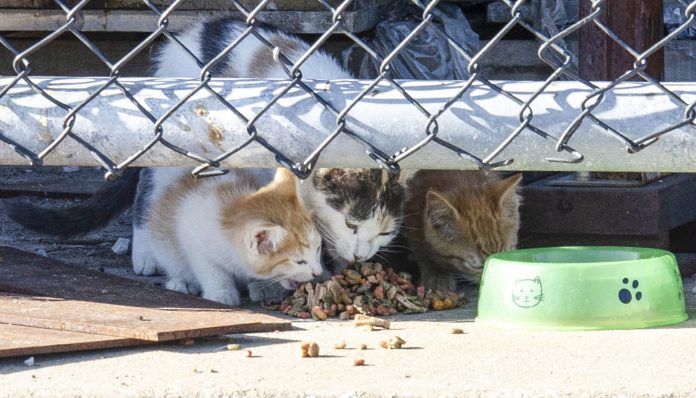By Don Steen
Staff Writer ~ reporter@psci.net
Apart from dogs, cats are among the stand-out stars of the animal kingdom in what scientists refer to as “The Anthropocene Epoch”. Few other creatures have better adapted themselves to a human-dominated world, but their success has been a double-edged sword for the environment and themselves. Feral and stray cat populations can be very difficult to control, leading outdoor colonies to become increasingly harsh for its feline population and perilous for local wildlife. Kathie Stafford of Curious Cats is working with other local organizations to capture, treat, and render these animals incapable of reproducing. They can then be released into their established colony, with regular feedings ensure a degree of comfort. This kind of operation is colloquially referred to as Trap-Neuter-Return.
Curious Cats was incorporated on June 6, 2022. Stafford volunteered for more than 11 years with the late Dottie Childers, who ran Pals 4 Paws. Stafford said there has been a visible rise in the feral cat population since Childers’ passing.
Stafford pointed out that a colony of neutered cats will eventually remove itself from the environment by natural attrition. However, for as long as the vaccinated and neutered individuals live together as a family, they will also serve as a check on rodents and even keep other feral cats away. She prefers to refer to these treated felines as “community cats”, as they serve a useful purpose in their home areas for their duration of their lives.
Managing stray cat populations is of particular concern in the United States and the New World in general. Domesticated cats as we know them today evolved gradually alongside early human settlements in Mesopotamia, forming an ad hoc alliance with early farmers against rodents attracted to stored grain. These smaller felines joined humans on ocean voyages where they served as mousers, colonizing the Americas alongside European settlers. While New World cats remained large and wild, the newcomers continued to set up shop in and around human settlements.
As a result, stray cats in the United States pose a considerable danger to local birds that evolved without smaller cats to worry about. Modern environments also pose a number of risks to cats themselves. As a result, Stafford emphasizes that domesticated cats should be kept indoors wherever possible, or at least fixed and kept close in a comfortable shelter to keep the population under control.
“Cats don’t belong outside,” she said. “It’s quite dangerous for them. They fight in the mating season, get hit by cars, killed by predators, get sick, and are hurt or killed by humans.”
Stafford reports that Curious Cats had more than 30 cats fixed, and have live trapped more than 60 more for similar organizations to tend to. She also provides regular transportation services for It Takes a Village and other services.
Read more on this story in this week’s issue of the Spencer County Leader!










